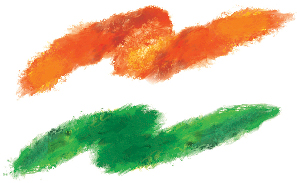 All companies have high expectations of how they will perform as a business and predictably high opinions of how well they’re serving their customers and shareholders. The real measure of competitiveness is how well companies employ their resources, as reflected in multitude operational metrics along with traditional yardsticks as revenue and earnings growth. This feature of Top Paper Companies will cut through the hype and identify, in detail, company’s operational performance, new developments, recent product launches, future plans, their export markets, CSR activities undertaken etc.
All companies have high expectations of how they will perform as a business and predictably high opinions of how well they’re serving their customers and shareholders. The real measure of competitiveness is how well companies employ their resources, as reflected in multitude operational metrics along with traditional yardsticks as revenue and earnings growth. This feature of Top Paper Companies will cut through the hype and identify, in detail, company’s operational performance, new developments, recent product launches, future plans, their export markets, CSR activities undertaken etc.
.
.
Ballarpur Industries Ltd.
Ideas in Paper
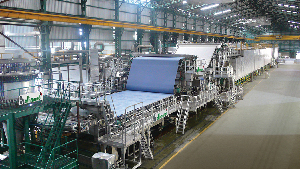 Established : 1945
Established : 1945
Mills :
Unit Ballarpur: District Chandrapur, Maharashtra;
Unit Bhigwan: District Pune, Maharashtra;
Unit Shree Gopal: Yamunanagar, Haryana;
Unit Sewa: Korapur, Orissa;
Unit Ashti: Gadchiroli, Maharashtra;
Unit Kamalapuram: Kamalapuram, Andhra Pradesh;
Unit Sabah Forest Industries (SFI): Sabah, Malaysia
..
Branch Offices : Ahmedabad, Chennai, Kolkata, Mumbai, New Delhi
No. of Employees : 2476 (permanent employees on its rolls)
Production :
2010-11: 886,230 MT
2009-10: 796,718 MT
2008-09: 604,731 MT
Financials:
Turnover :
2010-11: Rs. 4,498.1 crores
2009-10: Rs. 3,794.6 crores
2008-09: Rs. 2,824.7 crores
Net Profit (PAT) :
2010-11: Rs. 266.1 crores
2009-10: Rs. 240.4 crores
2008-09: Rs. 187.9 crores
Growth Rate : 18.2%
Energy Consumption Per Ton of Paper Produced: 1,118 KWH
Steps towards Environment, Society & Employee Welfare:
• BILT continues to work with the farming community for planting tree species that are suitable for industrial wood through its subsidiary, BILT Tree Tech Limited (BTTL), which is currently operating in Orissa, Chhattisgarh, Andhra Pradesh and Maharashtra. BTTL has environmentally controlled global standard nurseries in Maharashtra and Orissa with a capacity to produce 10 million plants for production of clonal saplings. The company also facilitates financial assistance for small and marginal farmers through bank. Regular training programmes are also conducted for farmers to educate and update them on the techniques of raising pulpwood plantations to yield maximum productivity from their land.
• The company has created various platforms in the communities which have been used as tools for community-based action programmes. Self Help Groups (SHGs), Youth Groups (YGs), Farmers’ Co-operatives, Village Education Committees (VECs) and Village Development Committees (VDCs).
Major Developments:
• Commissioning of satellite plant of SMI for PCC at the Unit for 100 per cent utilization of PCC in place of talc as filler.
• Installation of a new paper machine from Allimand, France with an installed capacity of 165,000 MT at Ballarpur Unit.
• Switched over to alkaline sizing, resulting in quality improvement with respect to brightness, opacity and bulk.
• Commissioned oxygen plant and started using in bleaching sequence Eop stage for reduction of hydrogen peroxide consumption.
• Commissioned DCS for bleach plant operation.
• An additional 120,000 MT of pulp capacity at Sabah Forest Industries Sdn. Bhd. (SFI), Malaysia is expected to come on line in October 2011.
• Acquired the entire paid up equity share capital of Premier Tissues (India) Limited (PTIL).
• Installed new bundling machine and new reel stretch wrapping machine to improve customer servicing.
• Introduced new labels with bar code to improve customer servicing.
• Reduction in customer complaints by 20 per cent.
• Completed major upgrade of core ERP – Oracle eBiz.
• On 5 August 2011, Ballarpur International Graphic Paper Holdings (BIGPH), a stepdown subsidiary, successfully completed its debut transaction in the international bond markets by raising US$ 200 million in perpetual non-callable 5/10 year bonds.
• BILT Paper Plc (BPP) was incorporated in the United Kingdom as a wholly owned step down subsidiary of the company. On 22 March 2011, BPP announced its intention to apply (ITF) for admission to the premium listing segment of the official list of the UK Listing Authority (“UKLA”), to trade on the main market of the London Stock Exchange and to undertake an offering of ordinary shares (IPO) of approximately US$330 million for capital expenditure and debt reduction.
Products Launched:
• ‘BILT Magna Print’ – it has become the largest selling uncoated brand in India.
• PTIL introduces two new brand ‘Premier’ and ‘Royal’.
• Unit Bhigwan art paper for digital printing and gravure printing, art card suitable for injection moulding painting process (paint shade cards job) and new shade development (high whiteness) in printed circuit board.
• Introduced new shade for ‘Ten on Ten’ market in copier grades.
• Ballarpur Unit successfully manufactured new shades in various products, namely BILT Magna Print, Wisdom Print, MICR Cheque Paper, Maplitho and Extensible Sack Kraft Paper (ESKP) to meet customer requirements, in domestic as well as export markets.
Export Markets: Exported over 14% production to 80 countries.
Future Plans: A 170,000 MT of additional pulp capacity is expected to be commissioned at Ballarpur by the quarter ending 30 June, 2012.
ITC Limited – Paperboards & Specialty Papers Division
Towards a Greener World
 Established : 1979
Established : 1979
Headquarter : Secunderabad, Andhra Pradesh
Mill :
Unit Bhadrachalam: Sarapaka Village, Bhadrachalam, Andhra Pradesh
Unit Tribeni: PO Chandrahati, District Hoogly West Bengal
Unit Kovai: Mettupalayam, Coimbatore District, Tamil Nadu
Unit Bollarum: Bollarum, Andhra Pradesh
.
Branch Offices : New Delhi, Mumbai, Ahmedabad, Kolkata, Chennai, Bangalore, Secunderabad
No. of Employees : 3682
Installed Capacity : 452,500 MT
Production :
2010-11: 558,884 MT
2009-10: 547,931 MT
2008-09: 469,335 MT
Financials:
Turnover : Rs. 3,667 crores
Growth Rate : 20%
Net Profit : Rs. 819 crores
All numbers mentioned here are from papers, paperboards and packaging business.
Area under plantation: 119,000 hectares (social forestry program + farm forestry program)
Also 8,000 hectares of land is under the process of getting certified under the FSC FM certification.
Water & Energy Consumption Per Ton of Paper:
Water : 54.67 kL/ton
Energy : 37.4 GJ/ton
Steps towards Environment, Society & Employee Welfare:
ITC Limited’s Climate change and sustainable livelihood strategies are in alignment with all relevant missions of the National action plan on climate change:
• National solar mission
• National mission for enhanced energy efficiency
• National mission on sustainable habitat
• National water mission
• National mission for a green India
• National mission for sustainable agriculture
• National mission on strategic knowledge for climate change
Minimising carbon intensity and adopting a low carbon growth path:
• 48% of total energy at the Bhadrachalam plant comes from utilization of bio-fuels.
• Bhadrachalam unit rated as most energy efficient factory of its type in the country by the CSE, New Delhi as per green rating project 2009.
• In 2010, the plantations sequestered 4785 tons of CO2 while the entire operations of ITC Limited, including the other divisions released 1709 tons of CO2 – Carbon Positive for 5 years in a row.
Water conservation and management:
• 24.3% reduction in specific water consumption at the Bhadrachalam unit (2010 over 2009).
• 54.8% reduction in specific water consumption at Tribeni unit (between 1999 and 2010).
• 37.6% reduction in freshwater intake at Kovai unit (between 2007 and 2010).
• Modern effluent treatment processes at all units, with effluent quality maintained far better than national standards at all units. Annual reductions are maintained in specific effluent discharge and the discharges are below the stipulated national standard.
• ITC’s watershed projects cover over 51,000 hectares of land and have helped us be Water Positive for 8 years in a row.
Solid waste management:
• ITC Limited has been solid waste recycling positive for 3 years in a row.
• The wealth out of waste initiative in conjunction with the Ramky group, promotes segregation of waste at source and proper recycling. ITC is collecting and recycling 25000 tonnes of waste every year.
Social: Social forestry programme provides free of cost, genetically superior saplings for plantation to tribal farmers. The saplings are designed to survive the harsh conditions and provide farmers with income from wastelands. Till 2010, the program had helped 19,376 households and accounted for 18% of the plantation cover.
Major Developments:
• FSC CoC certification for all four production units: Bhadrachalam, Kovai, Tribeni and Bollaram.
• Two grades of paper featured under WWF check your paper and rated good.
• CII – ITC Greencheck initiative launched to help printers and converters improve their environmental performance.
• WOW initiative in conjunction with National recycling institute to help segregation and collection of waste at source.
• SAP implementation – best IT practices.
• Green boilers introduced to help increased utilization of renewable energy source.
• Agroforestry model launched to help improve farmers with seasonal agriculture to improve productivity of their lands and improve wood supply to industry.
Products Launched:
Omega Series : bio-degradable laminates for paper and board
Trump Card : Black centred board
Digi Art : Specially designed board for digital printing needs.
Export Markets: Over 30 countries
Future Plans: Doubling the production capacity to reach 1 million ton over the next five years.
JK Paper Ltd.
Creating Lasting Impressions
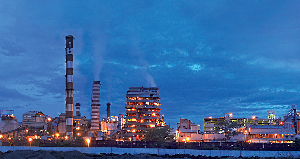
Established : 1962 (JKPM)
Headquarter : New Delhi
Mills : JK Paper Mills: Jaykaypur, Rayagada, Orissa
Central Pulp Mills: Songadh, Gujarat
Branch Offices : New Delhi, Kolkata, Mumbai, Chennai
No. of Employees : Around 2600
Installed Capacity : 240,000 MT
Production :
2010-11: 286,000 MT
2009-10: 274,000 MT
2008-09: 2,54000 MT
Financials:
Turnover :
2010-11: Rs. 1,432.97 crores
2009-10: Rs. 1,299.57 crores
Growth Rate : 17%
Net Profit (PAT) : Rs. 106.42 crores
Net Worth : Rs. 857 crores (as on 30th Sept, 2011)
Area under plantation : 2010-11: 6700 hectares
Total : 81,700 hectares
Water & Energy Consumption Per Ton of Paper:
Water : 69.24 m3
Energy : 1180 KWH
Steps towards Environment, Society & Employee Welfare:
• The company has made continuous efforts to reduce use of water and energy. The waste water generated during production is recycled and reused thus minimizing the fresh water consumption.
• Adoption of modern technology combined with process innovation and continuous improvement through kaizen have led to significant conversation of natural resources besides reducing emission.
• The company has gone for FSC certification which ensures that the raw material used is responsibly harvested.
• Adult literacy model was adopted to spread literacy in the nearby villages.
• Adopted ITI, Ukai under PPP scheme in Gujarat.
• Self help group were initiated with the idea to generate income through different activities like binding, phenyl making, spice processing etc.
• To carry out community development initiatives systematically, an NGO “SPARSH” has been formed.
• Basic health services including free medicines to ST & SC people through health camps have been organized in nearby villages at regular intervals.
Major Developments:
• During the year the expansion program of Rs. 1650 crores project was initiated with the idea of setting up 215,000 TPA Pulp Mill and 165,000 TPA Paper Machine, 55 MW Power blocks with all requisite auxiliaries.
• We became the first company in India to achieve HP’s proprietary ColorLok technology.
Products Launched: Colorlok papers in tie-up with Hewlett Packard, USA
Export Markets: 17 countries spread across South Asia, Middle-East, Africa, Latin America and Europe.
Future Plans: Company will grow in line with market growth rates in its three major product segments viz; Office Papers, Packaging Boards and Coated Papers.
Tamil Nadu Newsprint & Papers Ltd.
To be the market leader in the manufacturing of Eco-friendly world class papers adopting innovative technologies.
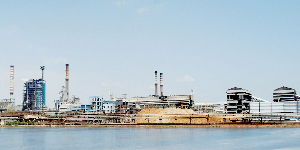 Established : 1979
Established : 1979
Headquarter : Chennai, Tamil Nadu
Mill : Karur District, Tamil Nadu
Branch Offices : Ahmedabad, Bangalore, Ernakulam, Kolkata, Mumbai, New Delhi, Secunderabad.
No. of Employees : 1926
.
Installed Capacity :
2010-11: 400,000 MT
2009-10: 245,000 MT
2008-09: 245,000 MT
Production :
2010-11: 265,044 MT
2009-10: 245,008 MT
2008-09: 254,903 MT
* PM#3 was commissioned on 19.01.2011 with a capacity of 155,000 MT.
Financials:
Turnover : Rs. 1225.04 crores
Net Profit (PBT) : Rs. 195.14 Crores
Net Worth : Rs. 915.79 crores
Area under plantation: 66,599 acres (total)
Water & Energy Consumption Per Ton of Paper:
Water : 55 Kl
Energy : 1573 KWH
Steps towards Environment, Society & Employee Welfare:
• Since inception, the company has been associating with community development activities of the surrounding villages.
• About 3% of the net profit after tax earned in the previous year is earmarked for CSR activities under 6 broad category viz. Education Sector (20%), Health Sector (10%), Infrastructure (25%), Economic Sector (20%), Environment Sector (20%) and Culture and Heritage (5%)
• Major activities are undertaken in consultation with the local Panchayats. During 2010-11, TNPL has spent Rs 3.24 crores for various CSR activities.
Major Developments:
Mill Expansion Plan (MEP): The company commissioned a new paper machine (PM3) on 19.01.2011 with a capital outlay of Rs 1050 crore. MEP comprises the installation of paper machine 3 of a capacity 155,000 MT, Backward integration of CBP ECF bleach plant, Installation of one power boiler to meet the steam demand and relocation of pith yard and stores building.
• The company is currently implementing three schemes:
• Installation of a 300 TPD new state-of-the-art De-inking Plant. The plant will be commissioned by May 2012.
• Revamping of power and steam system to improve energy efficiency and augment for generation. The project will be completed by July 2012.
• Installation of a 600 TPD Mini Cement Plant to convert the mill solid waste viz. lime sludge and fly ash into high grade cement. The plant will be commissioned by March 2012.
Export Markets: Exported 64,776 MT of Printing and Writing Paper valued at Rs. 259.36 crores to Algeria, Armenia, Austria, Benin, Bulgaria, Cameroon, Egypt, Indonesia, Iran, Jordon, Kenya, Kuwait, Lebanon, Malaysia, Myanmar, Nigeria, Philipines, Saudi Arabia, Senegal, Singapore, South Africa, Srilanka, Sudan, Syria, Thailand, Tunisia, Turkey, Yemen, UAE etc.
Future Plans:
• An on-site Precipitated Calcium Carbonate (PCC) plant of 60,000 TPA capacity on Built, Own and Operate (BOO) basis will be established during the financial year 2012-13.
• The company has planned to install a 100 TPD Tissue Paper Plant by March 2014.
West Coast Paper Mills Ltd.
Your partner in progress
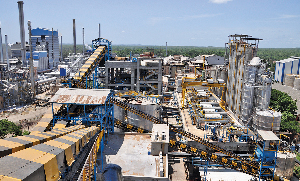 Established : 1955
Established : 1955
Headquarter : Bangalore, Karnataka
Mill : Dandeli, Karnataka
Branch Offices : Chennai, Kolkata, Mumbai, New Delhi,
No. of Employees : 2628
Installed Capacity : 320,000 MT
.
.
Production :
2010-11: 267,005 MT
2009-10: 173,638 MT
2008-09: 173,682 MT
Financials:
Turnover :
2010-11: Rs. 1,109.14 crores
2009-10: Rs. 650.50 crores
2008-09: Rs. 662.71 crores
Net Profit (PAT) :
2010-11: Rs. 90.08 crores
2009-10: Rs. 54.70 crores
2008-09: Rs. 90.54 crores
Area under plantation :
2011: 7,908 acres
Total: 29,824 acres
Water & Energy Consumption Per Ton of Paper:
Water : 95 KL
Energy : 1,433 KWH
Steps towards Environment, Society & Employee Welfare:
• The new machine consumes less water for paper production; investment in ECF pulp production helped rationalise water consumption by 33%. The result – a 78% increase in capacity was accompanied by only a 20% increase in water consumption.
• New chemical recovery plant enhanced chemical recovery efficiency from 95% earlier to 97%, besides reducing chemical consumption.
• New recovery boiler leverages the use of high pressure steam (63 kg at 470ºC compared with 45 kg at 390ºC).
• Employment for farmers equivalent to 450 person-days per acre per annum through forestry initiatives. The company procured 689,000 ton of wood in 2010-11 resulting in a rural income generation of Rs. 281 crore during the year under review.
• The company provided various services to villages in and around Dandeli. Doctors visited these surroundings once a week to provide free medical consultation, medicines and treatment in the company’s 30-bed hospital. The hospital comprises facilities like an operation theatre, X-ray machines, ECG, ultrasonography facilities and physiotherapy units. The company maintained equipped mobile health units.
• Provided cattle fodder and conducted cattle vaccination programmes for villagers.
• Through Dandeli Education Society quality education has been made available to the students of Dandeli and the surrounding areas right from the nursery to the post graduate level. Thanks to the institutions run by Dandeli Education Society this backward tribal area has produced Doctors, Engineers and other professionals in large numbers.
• Bangurnagar Colleges of Dandeli Education Society have introduced job-oriented and skill enhancement courses like computer training, industrial chemistry, microbiology and functional english. The first-of-its-kind four-year B.Sc. Pulp and Paper Science Degree course and M.Sc. (Tech.) programme in Pulp and Paper Science which are basically run on the company’s financial support, produce graduates who are assured of 100% placement in paper and allied industries.
Major Developments: Completed its expansion programme to increase production capacity to 320,000 TPA in May, 2010 at revised project cost of Rs. 1425 crores as against Rs. 1100 crores envisaged earlier.
• A new 800 TPD Fiber Line has been commissioned in February, 2010 to produce bleach pulp with ECF (Elemental Chlorine Free) technology to achieve high brightness level 90% plus. This new Fiber Line facilitates to achieve more pulp yield than in the past and consumes less quantity of steam. The effluent generated from this fiber line is far better with reduction in COD as well as colour.
• To cope with the production of 800 TPD bleach pulp, a new 11 TPD capacity chlorine dioxide plant with in-house hydrochloric acid generation plant, oxygen generation plant, additional falling film evaporators, 1100 TPD chemical recovery boiler, 235 TPD capacity new rotary limekiln and modern compact 3500 m3 per day white liquor production capacity causticizing plant have been installed and commissioned.
• A new state-of-the-art double shoe press paper machine has been commissioned in May, 2010 to produce 135,000 TPA of superior quality paper.
• To meet the enhanced steam and power demand for increased production a 125 TPH capacity FBC (Fluidised Bed Combustion) boiler and 34.5 MW capacity double extraction partial condensing turbine have been installed and commissioned in April, 2010.
Products Launched: Copier Paper of 70, 75 and 80 GSM.
Export Markets: Exported 17,962 MT of paper worth Rs. 74.72 crores in first half of 2011-12. Export markets mainly includes Middle East, Africa and South East Asia.
Future Plans: To enhance capacity to 500,000 MT.
The Andhra Pradesh Paper Mills Ltd.
Going Green, Going Global
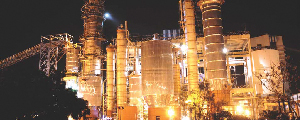 Established : 1964
Established : 1964
Headquarter : Secunderabad, Andhra Pradesh
Mills :
Unit APPM: Rajahmundry, East Godavari District, Andhra Pradesh
Unit CP: M R Palem, East Godavari District, Andhra Pradesh
Branch Offices : Delhi, Kolkata, Mumbai, Bangalore, Chennai, Kochi
No. of Employees : 2492
Installed Capacity : 241,000 TPA
Production :
2010-11: 187,233 MT
2009-10: 176,452 MT
2008-09: 177,748 MT
Financials (2010-11) :
Turnover : Rs. 795.93 crores
Net Profit : Rs. 44.94 crores
Growth Rate : 9% on Sales Volume and 21.6% on Turnover
Net Worth : Rs. 578.33 crores
Area under plantation : 115,933 hectares
Water & Energy Consumption Per Ton of Paper:
Water (including surplus pulp) :
Unit APPM – 73.78 KL
Unit CP – 49.8 KL
Energy : 1587 KWH (excludes quantity of consumption meant for sale of Power)
Steps towards Environment, Society & Employee Welfare:
• Distributed 103.7 million saplings which covered a plantation area of 15,000 hectares involving 2,447 farmers. As of 31st March, 2011, APPM has made available 798 million saplings which have been planted in a total area of 115,933 hectares benefiting 41,434 farmers.
• A number of eye camps and cataract operations, including free supply of spectacle, were organized in and around Rajahmundry. Free tailoring and embroidery training facilities were provided to women and youth through APPM developed training centres. In addition, about 300 women underwent a six month training program, which helped them to provide financial support to their respective families.
• Provided formal training to employees in subjects as varied as state-of-the-art pulping process, paper making technology and process, recovery efficiency, boiler operation, quality maintenance management, safety, ERP, employee development, cost and waste reduction, etc.
Major Developments:
• Paper Machine # 6: A 67,000 TPA paper machine imported from Germany was commissioned in May 2010
• Chipper line which enables more homogenous chips which in turn help produce good quality pulp
• A continuous digester that works on low solid and low temperature cooking of chips
• Export of Power: Retrofit of electro static precipitators (ESP) for reduction of emissions
• A two stage oxygen delignification plant followed by an elemental chlorine free bleaching plant
• A non-condensable gas burning system suitable for high volume and low concentration gases
• A chemical recovery system based on high steam economy evaporation and crystallization technology for higher solids concentration
• A recausticizing plant
• A rotary lime kiln
• A 34 MW turbine with a power boiler to supplement captive power
• A diffused aeration system with cooling tower to improve the efficiency of the effluent treatment plant
Products Launched:
Introduced a new 90+ brightness range of papers in a bid to re-establish and grow volumes in both copier and graphic papers:
• Copyrite – India’s first copier with Colourfreeze technology
• Reflection – a premium grade 70 gsm copier
• Andhra Starwhite – a non-surface sized writing & printing paper
• Andhra Skytone – a premium non-surface sized writing and printing paper
• Andhra Primavera – a high end writing and printing paper
• Andhra Royal Silk – a premium grade maplitho paper
• Andhra Hi Brite SG Maplitho – a superior special grade paper
Export Markets: Major markets are Bangladesh, Ghana, Kenya, Nigeria, Sri Lanka and United Arab Emirates etc.
Emami Paper Mills Ltd.
Grow and become leader in the paper segment.
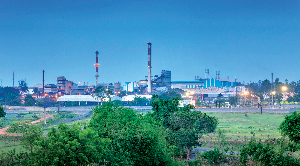 Established : 1981
Established : 1981
Headquarter : Kolkata, West Bengal
Mills : Balasore, Orissa & Kolkata, West Bengal
No. of Employees : 520 (Staff), 465 (Worker), 1170 (Contractual)
Installed Capacity : 145,000 MT
.
.
Production :
2010-11: 144,712 MT
2009-10: 142,494 MT
2008-09: 136,869 MT
Financials:
Turnover :
2010-11: Rs. 430 crores
2009-10: Rs. 386 crores
2008-09: Rs. 435 crores
Growth Rate : 11.42%
Net Profit (PBT) :
2010-11: Rs. 18 crores
2009-10: Rs. 12 crores
2008-09: Rs. 33 crores
Net Worth :
2010-11: Rs. 196 crores
2009-10: Rs. 182 crores
2008-09: Rs. 175 crores
Area under plantation: 10000 trees planted across the plant in an area of 50 Acres for green belt development. Another 50,000 plants are being planned for plantation in the proposed wood-based plant area adjoining the existing mill.
Water & Energy Consumption Per Ton of Paper:
Water : 18.06 m3
Energy : 1020 KWH
Steps towards Environment, Society & Employee Welfare:
• Conducting regular ayurvedic, homeopathic health camp in nearby villages.
• Arranging Mobile Health Camp for location of 10 Km radius.
• Distributing Exercise Note Book, accessories to nearby 100 schools.
• Helping for infrastructure development in nearby educational institutions.
• Extending helping hand to Orphanage Homes to meet their requirement.
• Construction of road.
• Arranging water Kiosk in summer season.
• Arranging Mass Marriage for poor girls.
• Arranging street light connection in nearby villages.
• Installing Tube well in nearby localities.
• Adoption of tribal village by providing basic amenities like toilets, drinking water facilities, insurance coverage for BPL families, sponsoring children for better education to KITS.
• Feeding poor people with Prasad.
• Providing mid-day meal in orphanage home.
• Activities under implementation includes Setting up an ITC for 250 students; Primary School for local society including employees children for around 500 children; 50 bedded Hospital for local villagers; Addition of block (2nd Floor) in Remuna College (near to factory).
• Fly ash from Power plant captively consumed for brick manufacturing and entire factory construction is carried out with fly ash brick.
• After dewatering of sludge upto 55 dryness and burnt in the FBC Boiler as replacement of coal. Not even a single Kg sludge is disposed off outside the mill.
• Plastic generated in the mill is being sent to Cement plant for burning in their process.
Major Developments:
• Implementation of SAP / ERP with effect from July, 2010.
• Put in place project management team for setting up 185,000 TPA Writing & Printing grades project.
• Started Agro-Forestry Division consisting of 50 members team headed by Vice President level person and covering the area of 300 Km radius consisting of nearby districts of Orissa, West Bengal and Jharkhand. Plans to cover 60,000 hectare of land under plantation during next 5 years period.
• Setup R&D and Clonal Nursery Centre on 20 acres of land at Nilgiri for producing 10 million clones every year.
• Acquired 230 acres of land adjoining the existing plant location (70 acres area) for its expansion projects.
• Listing of Equity Shares at Bombay Stock Exchange and regular trading started.
Products Launched:
• Pink Newsprint.
• Paper Printing White Prime – 60 / 70 GSM
Future Plans:
• Setting up Wood Based Integrated Pulp & Paper Mill of 185,000 TPA Writing & Printing paper at a project cost of Rs.1575 crores.
• Captive Power Plant of 40 MW for self sufficiency for power requirement.
Trident Ltd.
In Collaboration with Nature.
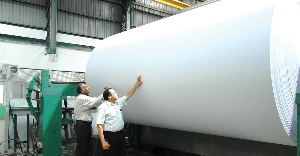 Established : 1993
Established : 1993
Headquarter : Sanghera, Punjab
Mill : Dhaula, Punjab
Branch Offices : USA, New Delhi ,Mumbai & Chandigarh
No. of Employees : 1,339
Installed Capacity : 175,000 MT
.
Production :
2010-11: 136,715 MT
2009-10: 123,639 MT
2008-09: 67,302 MT
Financials:
Turnover :
2010-11: Rs. 593.1 crores
2009-10: Rs. 494.2 crores
2008-09: Rs. 302.3 crores
* Turnover for Paper & Chemical business only
Area under plantation: 175.5 acres
Water & Energy Consumption Per Ton of Paper:
Water : 62 KL
Energy : 1,270 KWH
Steps towards Environment, Society & Employee Welfare:
• Formed SHE (Safety, Health & Environment) committee with three task forces which are Safety, Health & Environment.
• Environment friendly product developments – Paper from agri-residue and ECF Technology.
• Practicing 3R’s (reduce, reuse and recycle) and waste management in industrial plants.
• Implemented rain water harvesting to recharge the aquifers.
• Upgradation of Effluent Treatment Plant (ETP).
• Commissioning of a Water Treatment Plant (WTP) resulting in use of surface water by industrial plants in place of ground water and thereby saving ground water of the area.
• Proper treatment of sewerage water through STP (Sewerage Treatment Plant) and use of treated water for plantation.
• Formulation of ASMITA (Women Empowerment Cell) to particularly address the concerns of female members.
• Conducting free Medical Checkup camps to address issues like general health care, gynecological problems, orthopedic issues and other health problems.
• Disaster management initiatives for outside the premises of the company in coordination with civil authorities.
• Provision of residential colonies for operatives at plant sites.
• Organized blood donations camps on a regular basis.
• Funding the rural economy on a large scale and outsourcing of 20 percent raw material from the adjacent areas and villages.
• Imparting education to the females of the adjoining villages on various social issues.
• Training programs for employees from renowned faculties.
• Discussing major initiatives through Large Scale Interactive Process (LSIP) with participation of all the members.
Major Developments:
• Installation of ODL (Oxygen De-lignification’s) stage at wood fiber Line to increase the pulp brightness, reduction in chlorine di-oxide dose and environmental load.
• Installation of Pasaban folio sheeter.
• Installation of ceramic drainage elements at wire part of PM#1 for improving the paper formation.
• Batch system at stock preparation, PM#1, is modified to continuous with DCS control.
• Modification of press felt conditioning system at PM#1.
• Installation of MD Cleaner between primary and secondary screen in SFL plant.
• Installation of continuous sand separator to remove sand in washing stage.
• Modification in washers barometric leg to reduce soda loss and chlorine di-oxide.
• Development of high grade surface sized maplitho paper for high speed heat set web offset machine.
• Environment management system certification, ISO 14001.
• Introduced AKD Sizing with the use of GCC for Alkaline Paper making.
• Introduced polymeric surface sizing for reducing internal sizing and also to improve the printability of surface sized paper.
• Introduced micro particles drainage aid for improving the ash retention and increase in drainage aid, thereby increase in productivity.
• Use of peroxide stabilizer for reducing hydrogen peroxide consumption in bleaching.
• Green liquor addition at recausticizer of recovery causticizing plant to reduce the free lime waste in the mud cake of recovery plant.
Products Launched:
• Premium multi-purpose paper in March 2010
• Trident Natural multi-purpose paper in July 2010
• Crystal Line High Bright in September 2011
Export Markets: Over last 6 months exported 22% production worth Rs. 56.95 crores to USA, UK, France, Greece, Austria, Australia, Albania, Hong Kong, Italy, Kenya, Nigeria, Madagascar, Mauritius, Nepal, Slovenia, Sri Lanka, UAE, Uganda, Sudan, Congo, Zambia, Ivory Coast.
Future Plans:
• Stabilizing high brightness paper from wheat straw.
• Focus on water conservation.
• Consolidation of market share in domestic copier market.
• Development of eco friendly wheat straw based copier for US market.
• Development of high bright paper, 92%.
• Introduction of wet GCC in place of Ground Calcium Carbonate to enhance paper machine wire life, opacity and printability.
• Pulping & bleaching studies of alternative fibrous raw materials for both wheat straw & hardwood Street.
Seshasayee Paper & Boards Limited
Fine Papers – Lasting Impressions
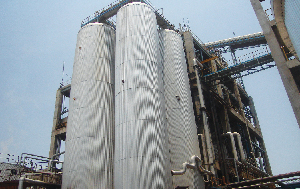 Established : 1960
Established : 1960
Headquarter : Erode, Tamil Nadu
Mill : Erode, Tamil Nadu
Branch Offices : Chennai, Madurai, Ernakulam, Bangalore, Hyderabad, Mumbai and New Delhi.
No. of Employees : 1,328
Installed Capacity : 115,000 MT
.
.
Production :
2010-11: 120,558 MT
2009-10: 117,989 MT
2008-09: 119,779 MT
Financials:
Turnover : Rs. 589.74 crores
Growth Rate : 11.49%
Net Profit : Rs. 65 crores
Net Worth : Rs. 366.06 crores
Area under plantation :
2010-11 : 7704 acres
Total : 30,811 acres
Water & Energy Consumption Per Ton of Paper:
Water: 83m3
Energy: 1750 KWH
Steps towards Environment, Society & Employee Welfare:
• Drinking Water facilities provided to Neighbouring villages.
• Established Community Health Centres at nearby villages.
• Lift Irrigation Schemes covering 2140 acres of dry and barren lands wherein treated waste water is being used.
• Cauvery Rural Development Centre promoted in Kadachanallur village, Tiruchengode Taluk, to provide employment opportunities to the downtrodden women folk from the neighbouring villages. Activities such as Coir Making, Note Book Manufacturing, Tailoring and Garment Making, are undertaken, in this unit.
• Established Two Churches, a Mosque and a Hindu Temple at SPB Colony.
• Conducting Free Eye Camps, Blood Donation Camps, and Diabetic Check Up Camps.
• Provided land and accommodation for various purposes like hospital, electricity, sub-station, post offices, bank, fair price shops, tailoring & embroidery training centre, crèche, milk distribution.
• CSR Activities in the neighbouring villages includes provision of rain water harvesting, laying of village roads, construction of culverts, street lights, renovation of old village temples, construction of public community toilets, repair and maintenance of burial ghats, construction, deepening & de-silting of storm water drains and strengthening of bunds and farm forestry programme related activities.
• Educational related activities included establishing elementary school, primary school, high school and a matriculation higher secondary school. Besides company regularly contributes to a Polytechnic at Tiruchirapalli, “Seshasayee Institute of Technology” to serve the educational needs of poor and down trodden students.
Major Developments:
• Optimisation of RDH process & ECF bleaching sequence for consistent pulp quality and high brightness.
• Implementation of Alkaline sizing (AKD) for the colored papers.
• Introduction of Direct orange in Binary sizing by replacing acid orange with acid sizing.
• Usage of Polymers additives for improved surface properties on paper.
• Introduction of high bright filler viz., soap stone powder 94% and imported ground calcium carbonate 94% for improved paper brightness and shade.
• Introduction of two-stage causticizing for removal of Silica in the lime sludge and for improving the re-burning of lime sludge.
Products Launched:
• Bristol Board (Light Buff)
• Colour Printing (Canary Yellow)
• Azure Laid success (Deluxe)
• Super White (High Brightness)
• Graphic paper (High Brightness 93%)
Export Markets: Exported 8,773 MT to Srilanka, Nigeria, UAE, Sudan, Jordan, Ghana, Egypt, South Africa.
Future Plans: Capacity Expansion in existing site coupled with enhanced focus on Tree Farming activities.
Rainbow Papers Ltd.
Generating wealth out of waste.
 Established : 1986
Established : 1986
Headquarter : Ahmedabad, Gujarat
Mill : Kalol-Mehsana Highway, Gujarat
Branch Offices : New Delhi, Mumbai
No. of Employees : 1733
Installed Capacity :
2010-11: 183,000 MT
2009-10: 183,000 MT
2008-09: 102,000 MT
Production :
2010-11: 137,496 MT
2009-10: 109,054 MT
2008-09: 85,995 MT
Financials:
Turnover :
2010-11: Rs. 385.52 crores
2009-10: Rs. 276.87 crores
2008-09: Rs. 227.03 crores
Growth Rate :
2010-11: 25%
2009-10: 22%
2008-09: 39%
Net Profit (PBT) :
2010-11: Rs. 37.16 crores
2009-10: Rs. 23.59 crores
2008-09: Rs. 23.61 crores
Net Worth :
2010-11: Rs. 285.01 crores
2009-10: Rs. 221.81 crores
2008-09: Rs. 82.99 crores
Area under plantation: Green belt around 80,000 m²
Water & Energy Consumption Per Ton of Paper:
Water : 11 m³
Energy : 700 KWH
Steps towards Environment, Society & Employee Welfare:
A new division is planned to set `Rainbow Institute of Technology & Research’ (RITR) for imparting training relating to paper and power projects. This institute would aim in imparting practical job oriented training to technical people about the latest technology in manufacturing of paper and generation of power.
Major Developments:
• PM-7 – Voith paper machine imported from Dachau, Germany having production capacity of 250 MT per day installed in August, 2010.
• PM-8 – Voith make paper machine imported from Dachau, Germany having production capacity of 350 MT per day installed in August, 2011.
• Incorporation of wholly owned subsidiary company in Dubai in the name of “Rainbow Papers JLT”. This subsidiary company will enable the company in prompt international trading of paper, pulp and related products in Gulf countries.
Products Launched:
• Glazed Newsprint
• LWC Paper
• Non-carbon paper
• Thermal Paper
• Brick from fly ash generated as by-product of power plant
• Plain and corrugated Plastic sheets from plastic waste
• Boards from sludge
Export Markets: Africa, Middle East, South East Asia, U.S.A., U.K., France, Indonesia, Sri Lanka, Egypt and Bangladesh.
Future Plans:
• Setting up a 400 TPD Folding Duplex Board Brownfield Project.
• Mill Modernization to add 42,000 TPA capacities
• Downstream integration through end products in packaging, stationery
• Sourcing Offices in UAE and US for Waste Paper
• Tie-ups for trading/representation of international paper brands in India
• Proposed Products includes Folding Duplex Board, Notebooks, Copier Paper.
The Sirpur Paper Mills Ltd
The company’s brand stands for trust, quality, service and customization.
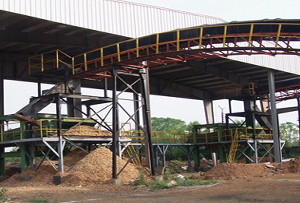 Established : 1938
Established : 1938
Headquarter : Gurgaon, Haryana
Mill : Kagaznagar, Andhra Pradesh
Branch Offices : New Delhi, Mumbai, Kolkata, Chennai, Jaipur and Hyderabad
Installed Capacity : 138,300 MT
Production :
2010-11: 93,900 MT
2009-10: 91,126 MT
2008-09: 92,298 MT
Financials:
Turnover :
2010-11: Rs. 364.59 crores
2009-10: Rs. 335.49 crores
2008-09: Rs. 346.21 crores
Net Profit (PBT) :
2010-11: Rs. 18.16 crores
2009-10: Rs. 10.44 crores
2008-09: Rs. 1.32 crores
Growth Rate : 8.67%
Steps towards Environment, Society & Employee Welfare:
• Scholarships to 89 students through the SPM Co-operative Society.
• In-plant training to engineering and MBA students from various branches.
• Provided note books to students at subsidised rates.
• Free medical checkups and medicines to employees as well as for the general public through the SPM health centre.
• Conducted monthly free eye camps and cataract operations for the public in general.
• Conducted free medical camps and provided free medicines in the aegis of ESI.
• Provided land for the construction of a government public school building.
• Maintained a children’s park along with cricket and football grounds for employees and the general public.
• Utilised back water to reduce chemical use.
• Stabilised the fibre line effluent treatment system.
• Distributed seedlings of subabul and eucalyptus clones at subsidised rates and covered an area of 2,570 Ha.
Major Developments:
• Installed twin roll press with capacity of 30 TPD.
• Installed an effluent treatment plant.
• Switched from acid sizing to alkaline sizing; alkaline sizing reduced costs and improved paper brightness.
• Introduced cooking aids in cooking to reduce cooking chemical consumption.
• Developed dyes compatible to AKD sizing in machines producing coloured papers.
• Identified and conducted enzyme trials to reduce power consumption during pulp refining.
• Installation of AFBC Boiler in place of old BHEL Recovery Boiler 1 x 50 Ton capacity 32 kg/cm2 at 4500 C.
• Installation of new ATLAS CAPCO Compressors in place of old compressors at Paper Machines.
Future Plans:
• The company’s power requirement is 22-23 MW per day, of which 14 MW is self-generated. The company intends to reduce consumption to 20 MW per day during this financial year and raise power generation efficiency to 20 MW per day, resulting in complete self sufficiency without further capital investments.
• Expects to invest in its existing boiler to plug the prevailing gap in steam and power availability on the one hand and provide a buffer to meet additional requirements whenever needed, on the other.
• In discussion with technology leader Voith to de-bottleneck PM8 and enhance productivity.
• Following successful implementation, the company aims to use ground calcium carbonate and precipitated calcium carbonate fillers to enhance paper quality.
Orient Paper & Industries Ltd.
Raising the Bar…
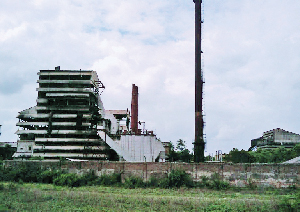 Established : 1939
Established : 1939
Headquarter : Kolkata, West Bengal
Mill :
Amlai – Madhya Pradesh
Brajrajnagar – Orissa
Installed Capacity : Amlai: 110,000 MT
Brajrajnagar: 76,000 MT (Idle)
Production :
2010-11: 52,534 MT
2009-10: 53,589 MT
2008-09: 65,132 MT
.
Financials:
Turnover :
2010-11: Rs. 287.90 crores
2009-10: Rs. 287.88 crores
2008-09: Rs. 362.30 crores
Growth Rate : 16.32%
* Turnover & Growth Rate are for paper & tissue business.
Net Profit (PAT) :
2010-11: Rs. 143.10 crores
2009-10: Rs. 159.30 crores
* PAT of OPIL including all divisions.
Area under plantation : 2010-11: 1,448 ha
Energy Consumption Per Ton of Paper : 1828 KWH
Steps towards Environment, Society & Employee Welfare:
• Provided highly subsidized education to over 3,307 students in primary and secondary schools.
• Provided free education to 600 students studying in Telugu medium school at Devapur.
• Provided subsidies of Rs. 1.4 cr to the schools at Devapur and Amlai in addition to free infrastructure, residential accommodation and power, among others.
• Provided free notebooks to 762 students in villages surrounding Amlai.
• Distributed free uniforms, books, lunch boxes and other material to underprivileged students of various schools in Devapur and Amlai.
• Organised safety exhibitions and training programmes for school students, housewives and local community members.
• Conducted a HIV and AIDS awareness programme.
• Supplied 2,780 tankers of drinking water to villages around Amlai and Devapur.
• Distributed 3.62 million high yielding clonal saplings to farmers of Amlai and nearby districts, encouraging them to cultivate saplings to enhance land and farmer productivity.
• Provided free outpatient consultancy to around 200 patients per day in our hospital and dispensary at Amlai and Devapur.
Major Developments:
• Increased tissue paper exports from 744 MT in 2009-10 to 4,527 MT in 2010-11.
• Increased clonal production for plantations from 1.3 million in 2009-10 to 3.62 million.
• It has increased its tissue paper production capacity from 10,000 TPA to 25,000 TPA in the last two years and acquired a caustic/chlorine plant, resulting in backward integration.
• Reduced water consumption from 8 MGD in 2009-10 to 6 MGD.
• Switched from acid to alkaline sizing, reducing chemical costs, improving paper quality (opacity and strength) and lowering water consumption.
• Stabilized new pulp washing street, resulting in enhanced pulp quality and compliance with environmental norms.
• Achieved savings in chlorine and water consumption and reduction of AOX by efficient oxygen delignification (ODL).
Export Markets:
Sri Lanka, China, French Polynesia, Ghana, Hong Kong, Philippines, Singapore, UAE, Thailand, Cyprus, UK, Australia, the USA, Nigeria and Nepal.
Future Plans:
• Setting up of 55 MW power plant at Amlai to fully cater to the requirements of both the paper and caustic chlorine plants at an investment of Rs. 174 crores.
• Expected to expand central nursery with a benching system to enhance clonal sapling production to 10 million by 2013-14.
• Full capacity utilization of the second tissue paper plant, by installing the second rewinder.
Murli Industries Ltd.
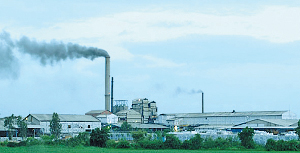 Established : 1991
Established : 1991
Headquarter : Nagpur, Maharashtra
Mill : Nagpur, Maharashtra
No. of Employees : over 3000
Installed Capacity : 208,000 MT
Production :
2010-11: 97,044 MT
2009-10: 88,323 MT
Financials:
Turnover :
2010-11: Rs. 280.82 crores
2009-10: Rs. 201.46 crores
Net Profit (PBT) :
2010-11: Rs. (-) 80 crores (loss)
2009-10: Rs. 1.42 crores
* Paper Business only
Steps towards Environment, Society & Employee Welfare:
• A significant portion of the recycled water is reused in plant operations which has resulted in cutting down on the consumption of fresh water by the company.
• The company has volunteered to initiate plantation drive in its immediate neighbourhood.
• Energy’s conservation measures initiated across the company’s businesses have resulted in significant savings and helped partially offset the inflationary trend in the fuel/electricity costs.
Major Developments:
• SBS Board unit of 250 TPD capacity commenced production.
• Cement Unit established with a capacity of 3 million tons.
• Power Plant at Chandrapur with a capacity of 50 MW to cater the power requirement of Cement Unit.
Export Markets: Bangladesh, Srilanka, Malaysia, Dubai and Thailand.
Future Plans: To become a global player
ABC Paper Ltd.
Operating in a cost effective manner through environmentally sustainable practices for the welfare of all around.
 Established : 1980
Established : 1980
Headquarter : Chandigarh
Mill : Saila Khurd, District Hoshiarpur, Punjab
No. of Employees : 1,334 (Staff: 359 and Workers: 975)
Installed Capacity :
2010-11: 104,000 MT
2009-10: 50,000 MT
2008-09: 50,000 MT
.
Production :
2010-11: 79,980 MT
2009-10: 60,553 MT
2008-09: 54,277 MT
Financials:
Turnover :
2010-11: Rs. 318.96 crores
2009-10: Rs. 220.93 crores
2008-09: Rs. 209.17 crores
Growth Rate :
2010-11: 44.37%
2009-10: 5.62%
2008-09: 13.15%
Net Profit (PBT) :
2010-11: Rs. 10.26 crores
2009-10: Rs. 9.36 crores
2008-09: Rs. 21.00 crores
Net Worth :
2010-11: Rs. 85.20 crores
2009-10: Rs. 76.48 crores
2008-09: Rs. 67.78 crores
Area under plantation : 104 Acres.
Also started a nursery of clonal varieties of fast growing species, and are spreading the acreage under plantation in the surrounding areas by distributing these saplings to the farmers.
Water & Energy Consumption Per Ton of Paper:
Water : 77m3
Energy : 1227 KWH
Steps towards Environment, Society & Employee Welfare:
• Developed and implemented the process for the biomethanation of alkaline sulphite black liquor first time.
• Adoption of lignin recovery process. The recovered lignin is used in various consumer industries such as concrete, ceramics, animal feed, phenolic resins.
• Sponsorship of R&D projects to Universities and Institutes for the development of eco-friendly processes.
• Quality education for local children through a public school run and managed by the mill management in the local village at subsidized fee.
• Free medical Check-up and awareness camps in the surrounding villages.
• Blood donation camps in the industry’s premises.
• Free supply of drinking water in the vicinity of the mill.
• Vocational training to students from various institutes such as ITI, Engineering Colleges etc. in the mill.
Major Developments:
Undertaken and completed a Rs. 200 crores expansion and modernisation program by setting up
• Paper Machine IV – 280 TPD with production speed of 750 MPM, Deckle length of 3,870 mm having GSM range of 45-90. The company is now able to manufacture SS Maplitho paper
• Wood Pulp Street – 60 TPD pulp line with hardwood/bamboo as raw material.
• Chemical Recovery Plant.
• Co-Generation Power Plant: Back Pressure Turbine of 74 TPH steam capacity capable of generating 10.0 MW power based on bio-mass fuels (i.e. rice husk, baggase, baggase pith, saw dust and fire wood chip) has been installed.
Products Launched : Superprint (2010)
Future Plans: A capital outlay of close to Rs 55 crore in various upgradation projects is being planned towards improving product quality, introduce value added products, reduce cost of operations and achieve a distinction in conserving environment.
• Film Press at PM IV
• Top Former at PM IV
• Upgradation of PM 2
• Double Stage Wet Washing System
• Chlorine Dioxide Bleaching plant
• Screw Press at Hard Wood Street
• Change of Vacuum Pumps PM # 4
• Replacement of Soot Blowers in the Boiler Bank Zone
• Flash Calcination of Lime Sludge for Recovery/Regeneration of Lime
The Mysore Paper Mills Ltd.
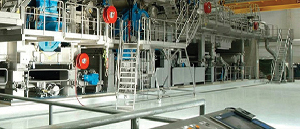 Established : 1937
Established : 1937
Headquarter : Bangalore, Karnataka
Mill : Bhadravati, Karnataka
Installed Capacity : 105,000 MT
Production :
2010-11: 76,658 MT
2009-10: 81,079 MT
2008-09: 109,271 MT
Financials:
Turnover :
2010-11: Rs. 295.15 crores
2009-10: Rs. 282.61 crores
Net Profit :
2010-11: Rs. (-) 84.78 crores (loss)
2009-10: Rs. (-) 77.23 crores (loss)
Energy Consumption Per Ton of Paper : 2071 KWH
Steps towards Environment, Society & Employee Welfare:
• The forest wing has supplied 131,206 MT of pulpwood by harvesting about 3381 ha. of captive plantations during 2010-11. In all, 2441.85 ha. of harvested plantation areas were regenerated by replanting/coppicing with species like acacia hybrid (901.75 ha.), eucalyptus pellita (435 ha.), eucalyptus camaldulensis (1092.10 ha.) and miscellaneous species (13 ha.).
• The farm forestry programme was continued by selling about 12 lac seedlings and by entering in to a buy-back agreement with farmers wherever they have availed seedlings @ 50% of the selling rate.
• The programme of raising large scale clonal plants of eucalyptus species in dry-zone nurseries has been started which will double the present yield from average 30 MT/ha. to over 60 MT/ha. in dry zone.
• The company has well defined health and safety policy periodical training programmes on safety, fire fighting, etc., are being conducted. Health check-ups, health awareness programmes by specialised doctors are being held from time to time.
Major Developments:
• Along with the implementation of IMS (Integrated Management System), the management has adopted
• Energy management plan with focus on energy conservation.
• Upgradation of steam condensate systems for PM-3 & PM-4.
• Commissioning of blow heat recovery system and new pulp screening systems in chemical Pulp Mill-II.
• Commissioning of single cell cooling tower in evaporator.
• Civil work for installation of rotary lime kiln.
• Online condition monitoring system for PM-4.
• Introduction of tri-disc refiners in PM-3.
Products Launched:
• CW – Elegant
• MPM note books
Future Plans: Taken up deinking plant of 200 TPD costing around Rs.125 crores which would help in cost reduction. It is expected that de-inking plant will be commissioned by March 2013.
Star Paper Mills Ltd.
Coming together for brighter future
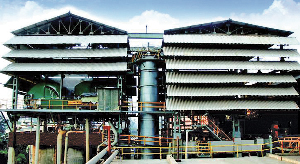 Established : 1936
Established : 1936
Headquarter : Kolkata, West Bengal
Mill : Saharanpur, Uttar Pradesh
No. of Employees : 1010
Installed Capacity : 75,000 MT
Production :
2010-11: 69150 MT
2009-10: 68,592 MT
Financials:
Turnover :
2010-11: Rs. 271.05 crores
2009-10: Rs. 262.25 crores
Net Profit (PAT) :
2010-11: Rs. (-) 10.15 crores (loss)
2009-10: Rs. 8.33 crores
Net Worth :
2010-11: Rs. 126.30 crores
2009-10: Rs. 137.36 crores
Area under plantation :
2011-12: 12,000 ha. (Projected)
Total: 85,168 ha.
Water & Energy Consumption Per Ton of Paper:
Water : 135 KL
Energy : 1513 KWH
Steps towards Environment, Society & Employee Welfare:
• Installation of energy efficient motors & pumps.
• Re-orientation of pulp feeding system for power optimization.
• Organized tailoring and stitching workshop to empower rural women to enable them earn their livelihood.
• Organized seminar on quality of life.
Products Launched: Few new varieties of Maplitho.
Export Markets: Saudi Arabia, Srilanka, South Africa, Ivory Coast etc.
Future Plans: We are in the process of developing new products in line with the market requirements.
Bindal Papers Limited
Eco Friendly Paper Save Tree Save Life
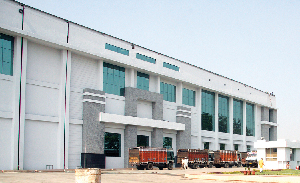 Established : 2009
Established : 2009
Headquarter : New Delhi
Mill : Muzaffarnagar, Uttar Pradesh
Branch Location : Mumbai
No. of Employees : 300
Installed Capacity : 90,000 MT
Production :
2010-11: 65,550 MT
2009-10: 39,866 MT
Products Launched :
• Ace Maplitho (Surface Size Paper)
• Fine Prints (Copier Paper)
Export Markets: Malaysia, Sri Lanka, Italy, Bulgaria, Phillipins, Turkey, Iran, Kuwait, Oman, Austria, Nepal, Sharjah, Georgia and various African countries.
Future Plans: Expand more network and international clients.
Servalakshmi Paper Ltd.
Eco- friendly Paper for everlasting impressions.
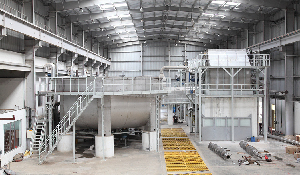 Established : 2005
Established : 2005
Headquarter : Coimbatore, Tamil Nadu
Mill : Tirunelveli, Tamil Nadu
No. of Employees : 349
Installed Capacity : 90,000 MT
Production: 47,643 MT
* 15 months figure: 1 Apr, 10 to 30 Jun, 11
.
Financials:
Turnover : Rs. 133.08 crores
Net Profit : Rs. (-) 53.65 crores (loss)
Net Worth : Rs. 116.02 crores
* 15 months figure: 1 Apr, 10 to 30 Jun, 11
Water & Energy Consumption Per Ton of Paper:
Water : 25 KLT
Energy : 950 KWH
Major Developments: Obtained FSC certificate since October 2010. We have been FSC certified under all the three systems.
Products launched: Lakshmi Offset Printing / Lakshmi Newsprint
Export Markets: Sri Lanka, African countries.
Future Plans: Planning production of various maplitho varieties and cut size copier.
Pudumjee Pulp & Paper Mills Ltd.
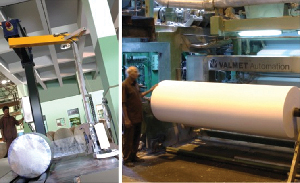 Established : 1968
Established : 1968
Headquarter : Mumbai, Maharashtra
Mill : Thergaon, Pune, Maharashtra
Installed Capacity : 42,500 MT
Production :
2010-11: 33,949 MT
2009-10: 34,613 MT
.
.
Financials:
Turnover :
2010-11: Rs. 225.35 crores
2009-10: Rs. 217.99 crores
Net Profit (PAT) :
2010-11: Rs. 8.11 crores
2009-10: Rs. 10.27 crores
Net Worth :
2010-11: Rs. crores
2009-10: Rs. crores
2008-09: Rs. crores
Energy Consumption Per Ton of Paper: 1853 KWH
Major Developments:
• With a view to partly cater to the company’s power requirement, a wind power project at Sadawaghapur in Maharashtra having capacity of 2.5 MW has been commissioned in March this year.
• Acquired a unit having land of about 75 acres at Mahad, District Raigad in Maharashtra. The company proposes to set up a paper / board manufacturing facility at a cost of about Rs. 100 crores.
• Installation of silent drive in dryer in group of paper machine.
• Improvement in quality of existing products with the use of specialty chemicals, alternate furnish, fillers & pigments etc.
• Cost Reduction by substituting partly recycled pulp for virgin fiber, use of alternate dyes & specialty chemicals.
• Conservation of natural resources via replacing virgin fibers with recycled paper pulp in certain paper grades.
Products Launched: Development of new grades of paper like release base paper, white print base paper, transfer paper bake oven paper, cigarette paper etc.
Future Plans:
• Utilisation of flash steam, insulation of bare/spoiled steam pipe lines.
• Replacement of aeration System by diffusor system at ETP.
• Replacement of ETP higher capacity pumps by optimum capacity pumps.
• Replacement of old motors by energy efficient motors.
• Cost reduction through use of alternative chemicals for surface improvement etc.
• Development of new value added products.
Yash Papers Ltd.
Focusing on today. Working towards tomorrow.
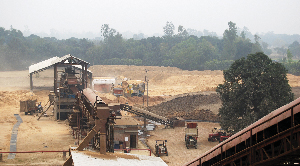 Established : 1981
Established : 1981
Headquarter : Lucknow, Uttar Pradesh
Mill : Faizabad, Uttar Pradesh
No. of Employees : 899
Installed Capacity : 39,100 MT
Production :
2010-11: 31,642 MT
2009-10: 30,201 MT
2008-09: 31,206 MT
Financials:
Turnover :
2010-11: Rs. 103.10 crores
2009-10: Rs. 83.87 crores
2008-09: Rs. 88.01 crores
Growth Rate : 22.93%
Net Profit :
2010-11: Rs. 3.05 crores
2009-10: Rs. 0.08 crores
2008-09: Rs. (-) 2.14 crores (loss)
Net Worth :
2010-11: Rs. 23.84 crores
2009-10: Rs. 36.08 crores
2008-09: Rs. 36.15 crores
Water & Energy Consumption Per Ton of Paper:
Water : 85 KL
Energy : 1,110 KWH
Steps towards Environment, Society & Employee Welfare:
• Our KK Charitable Foundation has three aims: education, sanitation and employment.
• We run two educational institutions in the plant vicinity – Yash Technical Institute, which is a vocational training centre, and Yash Vidya Mandir, a school for the children of factory workers and the village children.
• Providing quality education training for improvement in the learning levels of villages. We encourage educated youth to participate in the teachers training programmes developed by us, and provided free of charge. The trained teachers are then encouraged to return to their villages and impart education.
• We have built many toilets in individual houses in our surrounding villages. Our aim is to build 10,000 toilets in our surrounding areas by the year 2020.
• Run many training programs to enable self employment and entrepreneurship skills in the poor communities around us. Also running many training programs for villagers, like a sewing workshop for village women, where training is imparted, and then work is provided to them.
• Reinforced rural infrastructure – roads, wells, lighting arrangements and medical camps. Also initiating large-scale plantation programs to promote farm forestry, this would result in a win-win situation for future pulp needs of the company and income for the local farmers.
Products Launched:
• Super Deluxe Plain and Ribbed Kraft Papers (SDP/ SDR)
• Eco Pouch Base (EPB) for eco-friendly pouch packing.
• Coated Glossy Plain (Chromo)
• KCP – Kraft Chocolate Paper
Export Markets: Sri Lanka, Iran, Saudi Arabia, Dubai, Bahrain, South Africa, Philippines, Uganda, Kenya, Mauritius, Australia
Future Plans:
• Focus on the manufacture of customised products.
• Drive the sales of eco-friendly sachet packaging paper used in gutkha paper pouches and snacks.
• Modify existing paper grade properties to strengthen customer-friendliness.
• Rework paper machine engineering to improve paper quality.
• Install dandy roll to improve paper formation and physical properties.
• Work on front-line research by exploring micro fibrillar cellulose and nano fibrillar cellulose in collaboration with CTP Schwabmuchen, Germany and Dr. Bruce Lyne of Royal Institute of Technology, Department of Surface and Corrosion Science, Stockholm.
• Improve ashmoh binder to generate additional revenues from sales to cement manufacturers.
• Strengthen chemical recovery.
• Forge additional tie-ups for raw material resources.
• Augment our environmental compliance through solutions for rice husk ash and lime sludge disposal.
• Spread the green cover and securitise raw material through the planting of 5 lac seedlings annually.
• Incorporate modified versions of wire cloth, felts and specialised chemicals to upgrade paper quality
• Income from carbon emission reduction credits.

